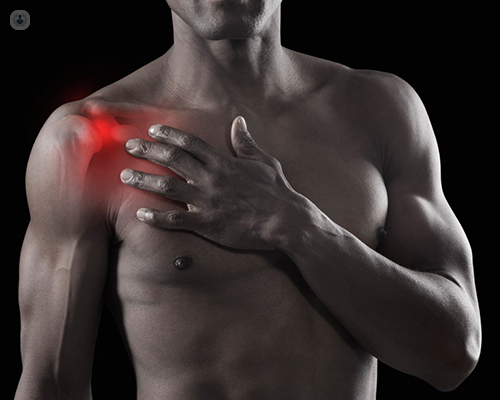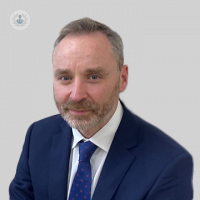When is surgery needed for shoulder problems?
Written in association with:Let’s face it: we have all, at some stage or another in our lives, suffered from some kind of shoulder-related problem. These kinds of injuries are almost impossible to avoid.
In our latest article, highly proficient, expert Dorset-based orthopaedic surgeon, Mr Colin Senior, reveals what the most common types of shoulder-related problems are, when people should seek assessment in relation to shoulder issues, and when surgery should be considered as a treatment option.

What are the most common types of shoulder problems?
Shoulder problems range from the mild to the severe. The main types of shoulder problems include tendon damage, shoulder instability, cartilage damage, as well as arthritis. Shoulder problems do, indeed, affect all age groups.
One of the most common shoulder issues I commonly witness is impingement. This typically occurs when someone falls on the arm, but can also sometimes occur without any obvious direct cause.
Are shoulder-related issues easy to diagnose?
Unfortunately, shoulder-affecting conditions and symptoms can sometimes go unnoticed and are thus quite difficult to diagnose.
When should I get assessed if I have a shoulder-related issue?
I would always advise patients to get checked out and assessed by a specialist to check for any tendon damage, whether mild or severe. This would then typically be followed by an ultrasound or MRI scan for further thorough assessment.
When should surgery be considered?
Surgical intervention should be seriously considered if neither injections nor physiotherapy alleviate the shoulder pain. The surgical procedure performed in this case would be a routine keyhole operation, which will relieve pressure on the shoulder tendons, and any damage will be fixed.
Previously, the only real surgical option for patients was a standard shoulder replacement. Now, however, we are seeing just how effective a reverse shoulder replacement can be for patients suffering from shoulder problems, which is an operation I typically perform.
What exactly does a reverse shoulder replacement entail?
A reverse shoulder replacement is ideal for patients who are suffering from both arthritis as well as tendon damage. In this procedure, the shoulder socket is converted into a ball, and the ball into a socket.
This changes entirely the overall muscle pull around the shoulder joint, which, in turn, does the world of good when it comes to pain relief and better, easier shoulder movement.
Mr Colin Senior is a highly experienced and esteemed consultant orthopaedic surgeon who specialises in sports injuries, traumatic injuries, as well as shoulder problems, amongst others. Book an appointment with him today via his Top Doctors profile.


